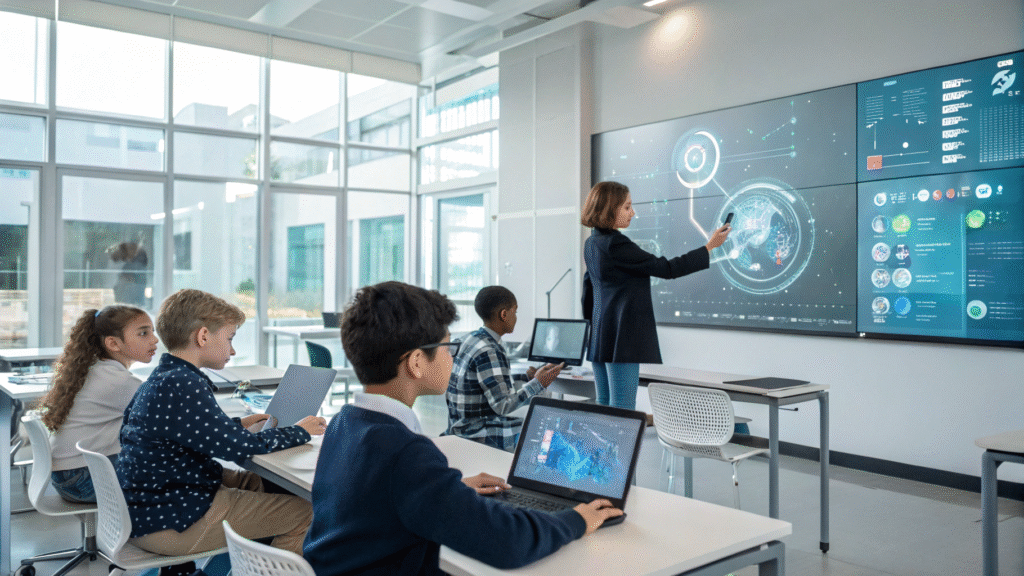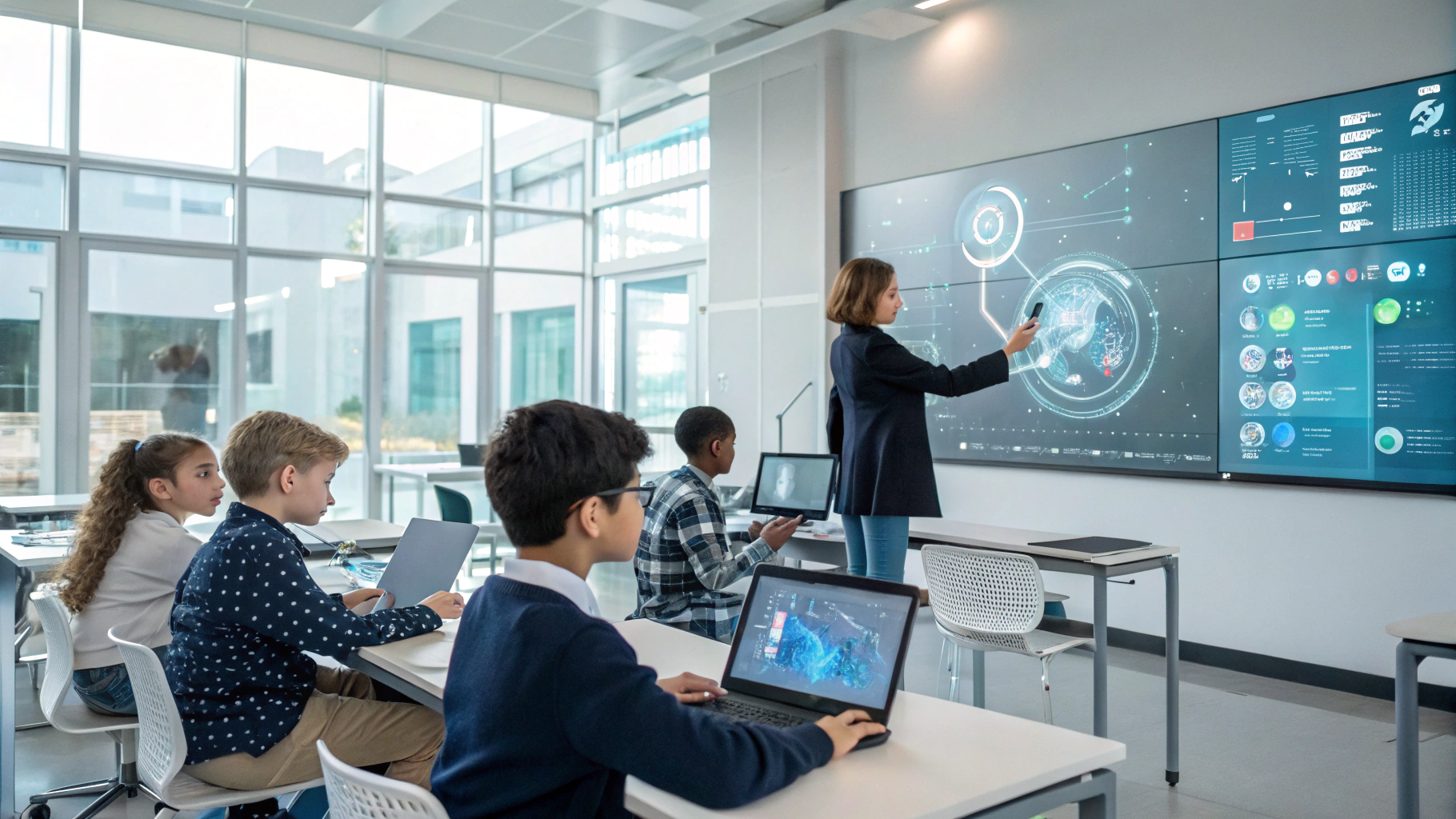Education has always been the foundation of human progress. But in 2025, Artificial Intelligence (AI) is taking learning to a new level. From personalized learning platforms to AI-powered tutors, technology is reshaping the way students acquire knowledge, how teachers deliver lessons, and how institutions measure success. This article explores how AI is transforming education in 2025, the benefits it brings, the challenges it poses, and the future it promises.
What is AI in Education?
AI in education refers to the use of intelligent algorithms and tools that can analyze, adapt, and personalize learning experiences. Unlike traditional systems, AI-powered platforms continuously learn from student interactions to provide a customized learning path, ensuring no two students have the exact same journey.
Key applications include:
- Intelligent Tutoring Systems (ITS): AI tutors that provide one-on-one assistance.
- Adaptive Learning Platforms: Tools that adjust content difficulty based on student performance.
- Automation in Education: Automating grading, administrative tasks, and lesson planning.
- Data-Driven Insights: AI analytics helping educators understand student performance better.

How AI is Revolutionizing Learning in 2025
1. Personalized Learning for Every Student
Traditional classrooms often use a “one-size-fits-all” approach. But AI changes that. Platforms like Khan Academy’s AI tutor or Coursera’s adaptive learning models provide personalized lesson plans tailored to each student’s pace, strengths, and weaknesses.
Benefits:
- Students learn at their own speed.
- Reduced learning gaps.
- Higher engagement and retention.
2. AI-Powered Virtual Tutors
AI tutors are available 24/7, unlike human teachers. They answer student queries instantly, explain complex topics in multiple ways, and provide practice exercises based on performance. This ensures students never feel stuck or left behind.
Example:
- Duolingo’s AI chatbot helps students practice languages interactively.
3. Automation of Administrative Work
Teachers often spend hours grading papers, preparing assignments, and handling records. In 2025, AI automates these tasks, allowing educators to focus on what truly matters — teaching and mentoring students.
AI automation in schools:
- Grading automation (essays, multiple-choice, coding tests).
- Smart scheduling systems.
- Student performance tracking.
4. Real-Time Student Feedback
Instead of waiting weeks for exam results, AI systems provide instant performance feedback. This allows teachers to identify learning gaps immediately and provide targeted help.
5. AI and Special Education
Students with disabilities benefit tremendously from AI tools. From speech recognition software for non-verbal students to AI-powered screen readers, technology is making education more inclusive than ever.
Benefits of AI in Education
- Increased Efficiency: Automating tasks saves time.
- Better Engagement: Interactive learning keeps students motivated.
- Accessibility: Breaking barriers for students with disabilities or remote learners.
- Cost-Effective: Online AI platforms reduce the need for physical resources.
- Global Reach: Students anywhere can access world-class education.
Challenges of AI in Education
Despite its potential, AI in education also raises challenges:
- Data Privacy: Student data needs to be protected from misuse.
- Over-Dependence on Technology: Students may rely too much on AI instead of critical thinking.
- Cost of Implementation: Not all schools can afford advanced AI systems.
- Bias in AI Algorithms: If not trained properly, AI may give unfair results.
Future of AI in Education Beyond 2025
Looking ahead, AI will continue to evolve:
- AI-Powered Metaverse Classrooms: Virtual reality classrooms where students interact globally.
- AI Mentors for Career Guidance: Helping students pick the right career based on strengths.
- Full Integration with Education Systems: Every school using AI to optimize learning.
By 2030, AI could replace traditional standardized testing with continuous AI-driven assessments, ensuring a more accurate evaluation of student progress.


